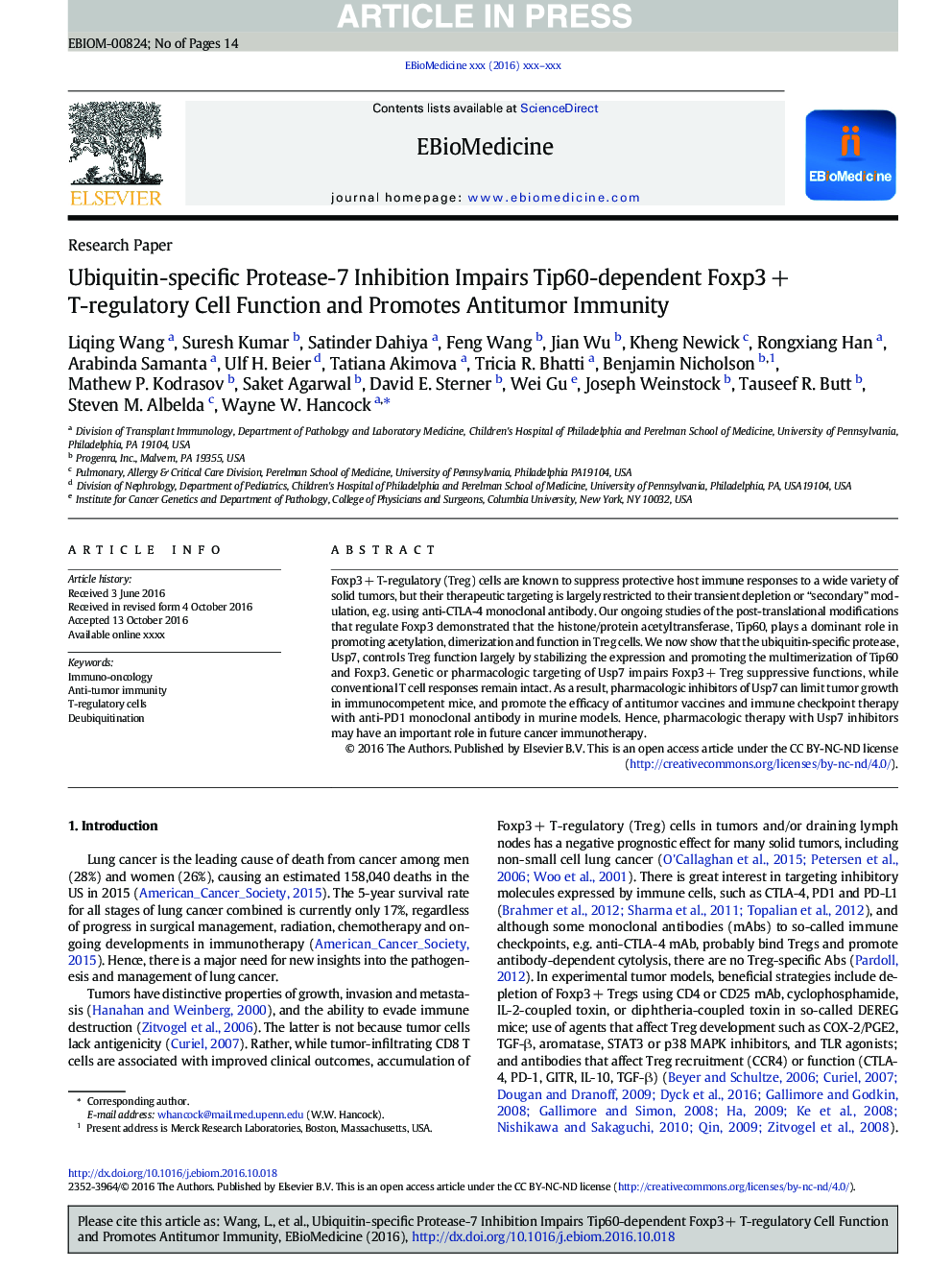| Article ID | Journal | Published Year | Pages | File Type |
|---|---|---|---|---|
| 8438960 | EBioMedicine | 2016 | 14 Pages |
Abstract
Foxp3Â + T-regulatory (Treg) cells are known to suppress protective host immune responses to a wide variety of solid tumors, but their therapeutic targeting is largely restricted to their transient depletion or “secondary” modulation, e.g. using anti-CTLA-4 monoclonal antibody. Our ongoing studies of the post-translational modifications that regulate Foxp3 demonstrated that the histone/protein acetyltransferase, Tip60, plays a dominant role in promoting acetylation, dimerization and function in Treg cells. We now show that the ubiquitin-specific protease, Usp7, controls Treg function largely by stabilizing the expression and promoting the multimerization of Tip60 and Foxp3. Genetic or pharmacologic targeting of Usp7 impairs Foxp3Â + Treg suppressive functions, while conventional T cell responses remain intact. As a result, pharmacologic inhibitors of Usp7 can limit tumor growth in immunocompetent mice, and promote the efficacy of antitumor vaccines and immune checkpoint therapy with anti-PD1 monoclonal antibody in murine models. Hence, pharmacologic therapy with Usp7 inhibitors may have an important role in future cancer immunotherapy.
Related Topics
Life Sciences
Biochemistry, Genetics and Molecular Biology
Cancer Research
Authors
Liqing Wang, Suresh Kumar, Satinder Dahiya, Feng Wang, Jian Wu, Kheng Newick, Rongxiang Han, Arabinda Samanta, Ulf H. Beier, Tatiana Akimova, Tricia R. Bhatti, Benjamin Nicholson, Mathew P. Kodrasov, Saket Agarwal, David E. Sterner, Wei Gu,
